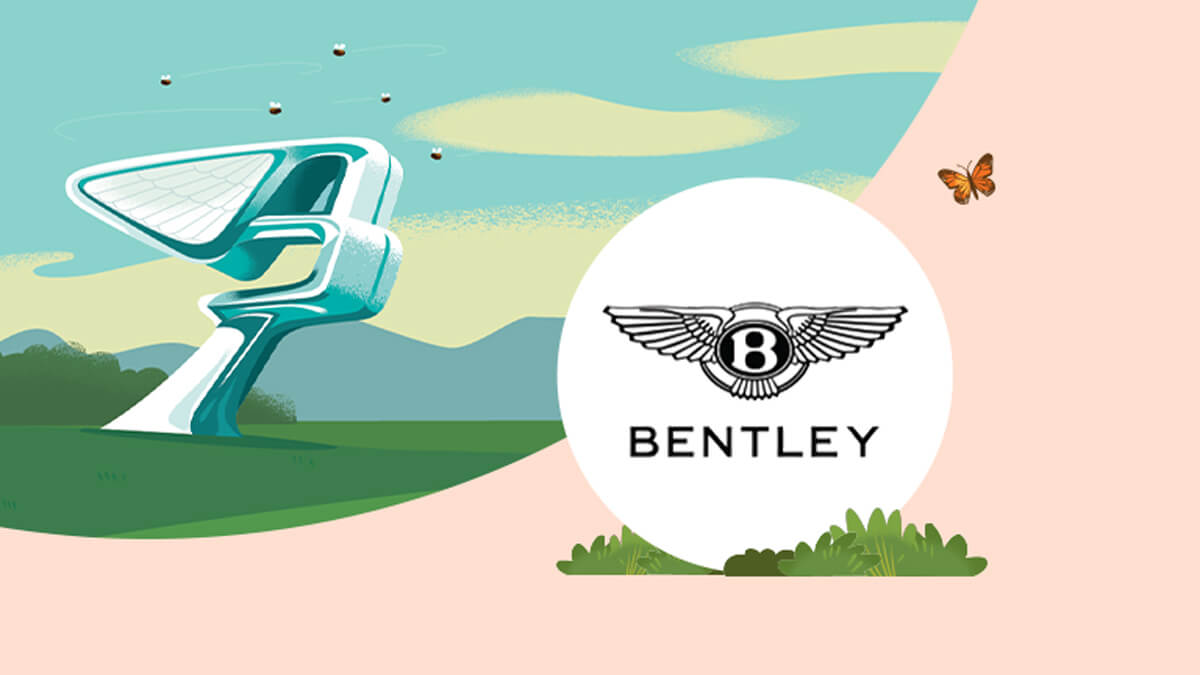Veolia UK puts people and the planet first with Salesforce
Find out how one Trailblazer helps customers transition to the circular economy.

Veolia UK helps more organisations combat climate change with Salesforce
From collecting empty plastic bottles via vending machines and trialling new plastic polymers, to rethinking carbon reduction strategies, Veolia UK&I is helping customers transition to a circular economy; a mission it calls ‘resourcing the world’.
“We’ve reached a pivotal moment for our planet and society. The climate emergency will affect us all – but especially the most vulnerable,” said Stuart Stock, CIO for Veolia, UK&I. “We want to help individuals and organisations address the huge social and environmental challenges that we now face.”
With its commitment to innovation and sustainability, Veolia has transformed the waste, water, and energy management industry. Its environmental solutions are designed to help organisations reduce carbon, preserve natural resources, protect biodiversity, and combat climate change – without creating complexity.
And Veolia is leading by example. To date, the company has recycled more than 120 million cups, restored 1,412 hectares of land at closed landfill sites, and switched to 100% renewable energy.
With more than seven million municipal and commercial customers, Veolia plays a critical role in helping businesses adapt to the circular economy and work towards net zero. In fact, it recently launched the world’s first entirely cloud-based waste management system to handle hazardous material.
“Salesforce helps to further reduce our carbon footprint and environmental impact while providing seamless services to customers, which is integral to our sustainability vision,” said Stock.
Table of Contents
Transitioning to a greener future
As Veolia offers more services, transparency will be key to ensuring customers have a joined-up experience.
“We need consistent processes and 360-degree visibility across the business to be the best possible sustainability partner to our customers,” explained Paul Watkeys, Head of Digital Products, UK&I. “Providing real-time insights on carbon consumption and overheads will help us expand into the energy market, for example.”
Salesforce has played a critical part in Veolia’s digital transformation in the UK and Ireland since 2009. When the company adopted an agile methodology and ethos of continuous innovation, it established a Centre of Excellence to deliver efficiencies at scale.
Putting people at the heart of digital transformation
The team worked closely with Salesforce Professional Services to establish best practices and map challenges, objectives, and the vision for Salesforce 2.0.
“To remove constraints, we decided to ditch code and use out-of-the-box functionality,” revealed Watkeys. “We took an outside-in approach, putting the customer at the heart of operations and designing an experience that would help both Veolia and our customers achieve sustainability goals.”
With approximately 16,000 colleagues across the organisation, Veolia ran focus groups, ride-alongs, and nominated super users and advocates to help shape the employee experience.
“To make Salesforce more valuable for users, every click needs to count,” Watkeys explained. “We also relied on support from the Salesforce Customer Success team and attended Salesforce Accelerators to make sure we were working in the smartest possible way.”
Staff use Trailhead to learn new skills both inside the Centre of Excellence – which currently holds 1,000+ badges between 20 staff – and throughout the organisation, something Watkeys notes is excellent for social and professional mobilisation.
“Trailhead means we can bring on apprentices and upskill people from the local community. Staff can also explore more opportunities at Veolia if they want to carve out a new career path as the company evolves,” he added.
Going paperless supercharges sales
Prior to starting its digital journey, more than 27 million pieces of paper flowed in and out of Veolia’s 400 sites every year – not great for sustainability. Digitalisation hasn’t just helped to reduce this paper trail; it’s also increased efficiency for colleagues and customers.
For example, with Sales Cloud, new commercial waste customers can now be signed up in hours instead of weeks. “The sales process is completely electronic, which means we can move prospects through the funnel faster,” explained Watkeys. Thanks to an integration between Sales Cloud and Adobe Sign, waste service contracts are signed by SME customers within an average of 60 minutes.
With a comprehensive overview of every customer, sales reps can have better conversations about their overall needs and offer better pricing. This also eliminates duplicated effort between departments if a customer uses multiple services.
The company also launched an online selling platform on Experience Cloud to simplify its end- to-end customer processes, including contract signature and activation for a wide range of recycling and waste management services, such as dry and mixed recycling, food waste, glass, and cardboard. The community has already attracted more than 3,000 new customers, smashing last year’s sales record in just six months, and reducing the number of salespeople on the road.
Increasing efficiency and visibility with smoother integrations
Integrations are critical to Veolia’s digital roadmap – especially as Salesforce hosts its master customer data. Veolia has created more than 200 APIs for a range of operational systems, which helps provide 360-degree visibility of customers and the services they’re using.
Veolia has also established APIs with external partners to provide a more seamless customer experience. For example, it can see live updates in Service Cloud of bin bag deliveries to commercial waste customers. By tracking bin bag requests and deliveries centrally, Veolia can better manage stock levels to meet customer demand and fulfil orders faster.
Optimising hazardous waste collections
In August 2021, Veolia went live with a fully digitalised service to optimise hazardous waste collections. From oily rags at a local garage to solvents on a construction site, Veolia collects more than 381,000 tonnes of hazardous waste every year.
“We have to follow different regulations and processes for different materials,” explained Watkeys. “With Salesforce, we can track the status of every waste consignment and allocate it to the most appropriate site to maximise recycling opportunities.”
Salesforce supports every step of the process from the initial quote to scheduling the collection, chemical analysis, collection, and final payment.
Each consignment is categorised in Salesforce and shared with hazardous waste crews via the Field Service app, which helps to prevent cross-contamination between different materials. The team can also use the app to cross-check consignments with logged jobs and capture customer signatures digitally.
With vehicle crews and operations teams all logging data in Field Service, Veolia can manage its resources better and collect hazardous waste faster. Drivers are sent consignment notices, legal documentation, and weighbridge tickets digitally, while customers receive automatic status updates. This isn’t just more efficient, it’s another way Veolia is consigning paper processes to the past.
In the first eight months, the company transacted more than £100 million of revenue across its hazardous waste collections. More than 400 users from sales to depot staff and chemists to site managers all work in Salesforce.
Better Field Service on air, land, and sea
At Veolia, Field Service isn’t limited to land. It also uses barges for fast, discreet removal of marine waste, such as wastewater from cruise ships.
Previously, this was a paper-based process, and collected material would need to wait at the dock until the correct paperwork had arrived and been checked. With Field Service, the marine team can scan barrels in real-time and track waste as it’s collected.
By leveraging the vessel’s satellite connectivity, data is transmitted to the team at the quayside who can make provisions for it to be collected and processed as soon as it arrives.
This isn’t just safer and more efficient, it’s also 50% faster than previous.
A greener approach to customer service
With industrial customers often using multiple service lines, Veolia’s support teams need 360- degree visibility of the relationship when answering calls and emails. With Service Cloud, advisors can see case histories, service contracts, collection schedules, and invoices, which means they can respond faster and smarter to customer queries.
Advisors also engage via web chat, which is powered by Live Chat and embedded into Veolia’s B2B customer portal. However, with next generation Einstein chatbots, the company is leveraging machine learning to resolve queries quickly without any human input. As the solution matures, the chatbots will get smarter and be able to handle an increasing volume of queries.
“Self-service on demand is better for the environment than phoning an agent in a call centre, which comes with carbon emission overheads. It’s a long-term win for everyone,” added Watkeys.
With Service Cloud, the company handles more than 6,000 live chats per month with a 60% average first time resolution rate for customer queries. Chatbots have reduced the number of support calls by 400 per day, which has a meaningful impact on sustainability targets.
Agents can also be more efficient – where they can only handle one call at a time, staff can conduct multiple chats simultaneously without impacting quality.
But it’s not just the support team benefitting from Service Cloud. Sales reps can view the full case history before reaching out to customers, which helps them have the right conversation at the right time. By combining Service Cloud data with other operational metrics, Veolia can also predict potential customer retention issues and take action to reduce churn.
Increasing engagement with smarter campaigns
To stay close to prospects throughout the sales cycle, Veolia used Account Engagement and is also rolling out Marketing Cloud. The team engages with more than 50,000 prospects by email across a range of sectors and business lines as part of its highly complex marketing strategy. Marketing Cloud can maximise the success of this strategy.
By optimising how it handles leads and increasing conversion rates, the average time from first contact to order has decreased by 15 days.
But the company isn’t just using Marketing Cloud to support presales, it’s deeply embedded in the customer lifecycle to support up- and cross-selling. And with Einstein engagement scoring, customers are sent on more relevant, trigger-based journeys at the right time to maximise click- through and open rates.
Meanwhile, the marketing team can actively monitor the impact of campaigns to tailor them to pack the most punch with customers.
Building a greener world for future generations
Innovation is at the core of Veolia’s strategy to build a circular economy and promote sustainable products and services. The company has already achieved a number of firsts thanks to its continual investment in research and development, including launching its first renewable fuelled fleet, and exploring new alternative biofuels.
Veolia is also continuing to invest in new digital initiatives to drive ecological transformation. And data will play an increasingly crucial role in that initiative.
“The more data we capture, the more predictive we can become about our customers and the services they need to achieve their sustainability goals and reduce carbon emissions,” said Stock. “With Salesforce, we can help more organisations minimise their environmental impact and build a greener world for generations to come.”
More Resources

Customer Story
How Bentley Motors Is Reimagining Its Customer Experience for the Next 100 Years

Customer Story
Ashfield Engage: next generation healthcare engagement

Customer Story
How personalisation has helped boost Heathrow’s digital revenue by 30%







